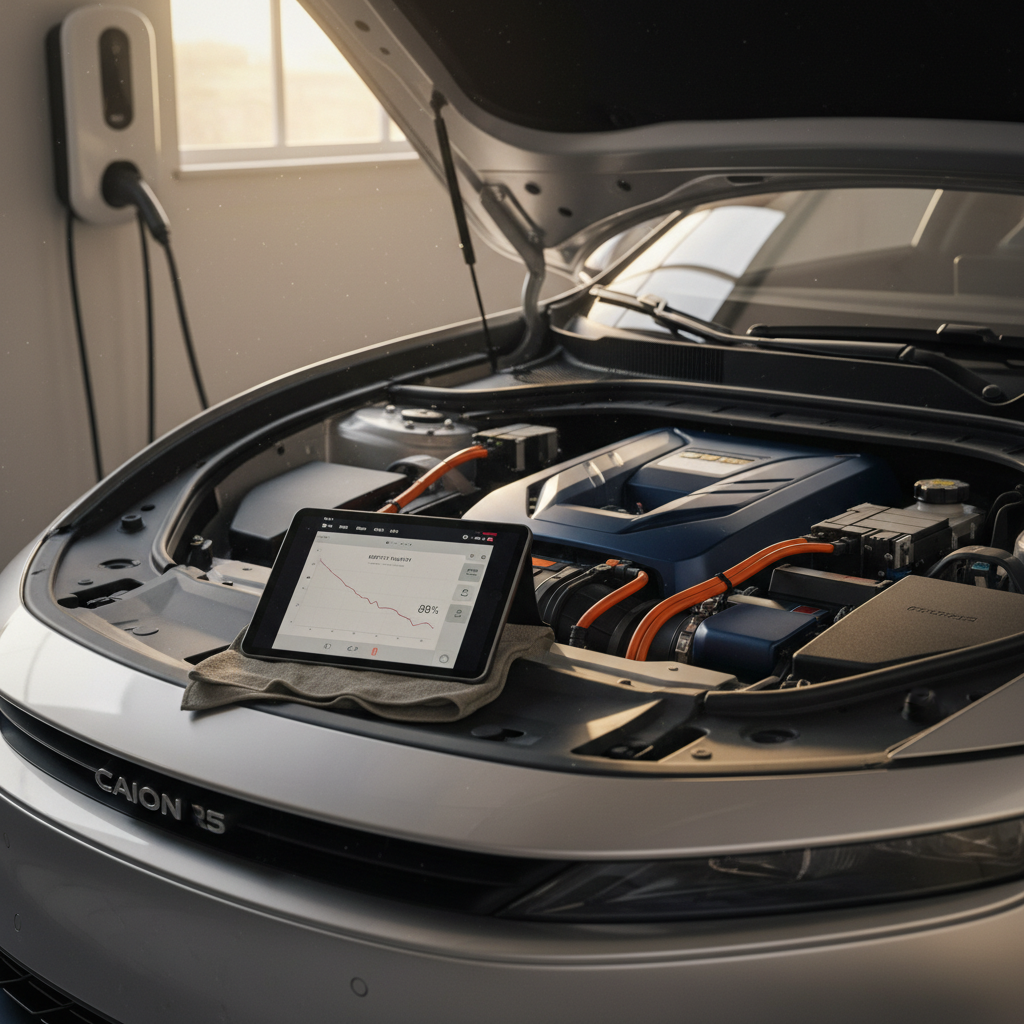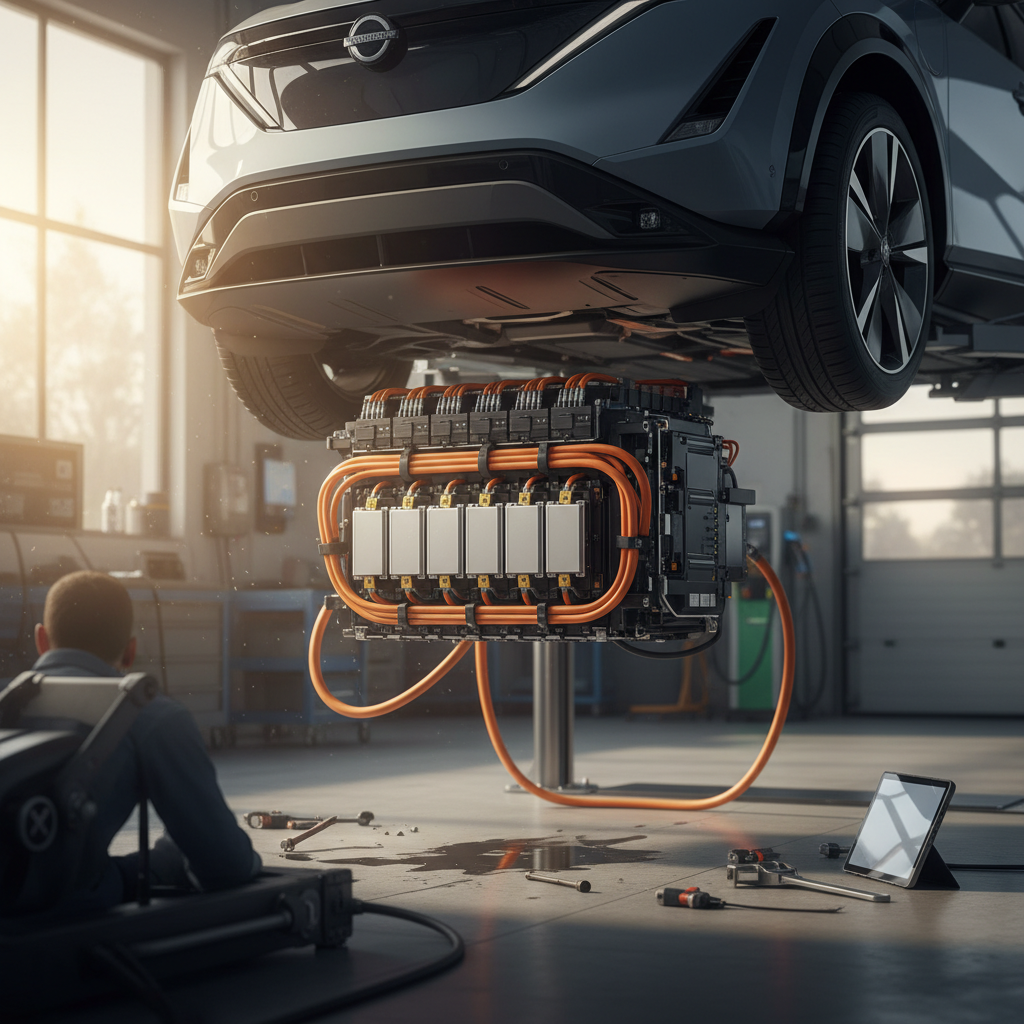If you’ve been typing “pre owned truck near me” into search boxes lately, you’re not alone. Between rising new-truck prices, changing tax credits, and the arrival of electric pickups like the F-150 Lightning, Rivian R1T, and Cybertruck, the pre-owned truck market in 2025 is crowded, confusing, and full of opportunity if you know where to look.
What this guide covers
Why pre-owned trucks are so hot right now
The 2025 used truck landscape at a glance
New truck MSRPs have climbed steadily over the last decade, and in 2023–2024 many buyers were pushed into longer loan terms just to make payments work. As interest rates rose and federal EV incentives began winding down in late 2025, demand shifted heavily toward well-priced pre-owned trucks that avoid the steepest first-year depreciation but still feel modern.
Watch the interest rate, not just the sticker
Gas vs. electric when searching for a pre-owned truck near you
Traditional gas & diesel trucks
- Pros: Huge selection; familiar to most mechanics; great for very long towing trips where charging infrastructure is thin.
- Cons: Fuel and maintenance costs add up, especially if you’re putting 15,000+ miles a year on the odometer.
- Best for: Heavy commercial use in rural areas, DIYers who already own tools, and buyers who rack up highway miles with unstable charging access.
Electric pickups (Lightning, R1T, Cybertruck & more)
- Pros: Huge torque, smooth driving, less maintenance, at‑home charging, and often lower “fuel” cost per mile.
- Cons: Range drops with heavy towing or cold weather; charging plans require some thought; you need clear data on battery health.
- Best for: Daily commuting, mixed work/play, and fleets that operate within a consistent radius and can charge overnight.
A simple rule of thumb
Popular used electric trucks you’ll see in searches
What each model is known for when it shows up in your local results
Ford F-150 Lightning
Feels familiar if you’ve owned an F‑150 before, but with instant torque. Look closely at battery size (Standard vs Extended Range) and towing history.
Rivian R1T
Adventure‑oriented, with strong off‑road hardware and clever storage. Earlier trucks may have more aggressive fast‑charging usage, ask for battery health data.
Tesla Cybertruck
Polarizing design, impressive performance, and frequent software updates. Because pricing has been volatile, focus on total cost of ownership, not just headline discounts.

How to actually search for a pre-owned truck near you
When you’re looking for a pre-owned truck near me, the trick is to combine the reach of national platforms with the convenience of local inventory. That applies whether you’re shopping a gas half‑ton pickup or a used Rivian R1T.
Three search strategies that work in 2025
Use them together instead of relying on one site or one dealer
1. Cast a wider digital net
Start with nationwide marketplaces that let you filter by drivetrain, towing capacity, bed length, and, if it’s an EV, battery size and estimated range. For used electric trucks, look for listings that include a third‑party battery health report, not just range estimates.
2. Tighten to driving distance
Once you know what you want, filter down to vehicles within a radius you’re comfortable picking up from or having delivered. Many EV‑focused retailers, including Recharged, offer nationwide delivery so you’re not limited to your ZIP code.
3. Use local dealers surgically
Local dealer websites can surface trade‑ins that haven’t hit major marketplaces yet, especially for traditional gas trucks. Just remember that advertised prices may not include doc fees, add‑ons, or marked‑up financing.
Checklist: setting up smart search alerts
Pick your must‑have specs first
Decide on cab configuration, bed length, 2WD vs 4WD/AWD, and payload/towing needs before you browse. This keeps you from falling for a shiny truck that can’t actually do your job.
Separate EV and ICE searches
Run separate saved searches for electric pickups and gas/diesel trucks. Pricing dynamics, running costs, and availability are different enough that they deserve their own filters.
Demand VIN-level transparency
Set alerts or filters for listings that include the full VIN, a clean title status, and access to a history report. For EV trucks, prioritize listings with a documented <strong>battery health test</strong>.
Compare out-the-door pricing
When you find candidates, ask for a written breakdown: vehicle price, taxes, doc fees, add‑ons, and delivery. A slightly higher advertised price may be cheaper once the extras are exposed.
Pricing: what a pre-owned truck should cost in 2025
Pricing in 2025 is messy. New EV pickup sales cooled after a hot launch cycle, pushing manufacturers to discount and reshuffle production. At the same time, federal EV tax credits for used vehicles were curtailed after September 30, 2025, which means you can’t count on the old $4,000 “previously-owned clean vehicle” credit for most purchases going forward.
Typical pricing bands you’ll see for late-model trucks
These are directional 2025 examples for illustration only, expect variation by mileage, trim, and region.
| Truck type & age | Typical price range | Notes |
|---|---|---|
| 3–5 year-old full-size gas pickup | $25,000–$45,000 | Big spread driven by trim, mileage, and options; fleet-spec work trucks undercut high-trim off-roaders. |
| 1–3 year-old compact/midsize pickup | $22,000–$38,000 | Strong demand keeps prices firm, especially on crew cabs with good safety and tech. |
| Early Ford F-150 Lightning (’22–’23) | $40,000–$65,000 | Extended Range and Lariat/Platinum trims sit at the high end; commercial-spec Pro models can be significantly cheaper. |
| Rivian R1T (’22–’24) | $55,000–$85,000 | Adventure packages and Max Pack batteries command premiums; watch for wheel/tire choices that affect range. |
| Early Tesla Cybertruck (’24–’25) | $70,000+ | Pricing remains volatile as Tesla adjusts MSRP and inventory discounts. Focus on total cost vs your actual needs. |
Always check real‑time market data for the specific VIN you’re considering.
Use pricing tools, but sanity‑check them
Inspection checklist for any used truck
Whether the truck burns gasoline or electrons, you need to know how it’s been used. Half‑tons spend their lives doing school runs; others have lived at max payload on construction sites. That history shows up in wear patterns that a quick test drive can’t hide.
Non‑negotiable inspection items for any pre-owned truck
Frame, bed, and underbody rust
Surface rust is common; structural rust on the frame rails, bed mounts, or suspension pick‑up points is a major red flag, especially in snow‑belt trucks.
Evidence of heavy towing or overloading
Look for worn hitches, upgraded rear springs or airbags, and sagging leaf packs. Excessive towing can stress engines, transmissions, and, on EVs, batteries and cooling systems.
Suspension, steering, and brakes
Clunks over bumps, uneven tire wear, or a spongy brake pedal can hint at costly repairs. On lifted trucks, verify that the lift was installed properly and aligned.
Accident and flood history
Pull a vehicle history report and have a mechanic check for overspray, misaligned panels, and water lines in the cabin or under the carpet. Flood damage is a deal‑breaker, especially on modern electronics‑heavy trucks.
Interior wear vs. mileage
A truck with low odometer readings but heavily worn seats and steering wheel may have seen hard use or odometer issues. Wear should broadly match the stated mileage.
Don’t skip a pre-purchase inspection
Extra checks you must do on a used electric truck
Electric trucks add a new dimension to the used‑truck playbook: battery health. That pack is the single most expensive component on the vehicle, and small differences in degradation or fast‑charging history can translate into big differences in usable range and resale value.
Key EV-specific checks before you buy that used truck
If the seller can’t answer these questions, move on.
1. Independent battery health report
You want more than a dashboard range estimate. At Recharged, every used EV, including electric pickups, comes with a Recharged Score Report that measures real battery health, fast‑charging history, and projected future range, so you’re not guessing.
2. Charging behavior and hardware
Ask how the truck was primarily charged (home Level 2, DC fast charging, or a mix) and whether the owner used official charging equipment. Overreliance on fast charging isn’t an automatic deal‑breaker, but it makes verified diagnostics more important.
3. Range in your real-world use
Published range figures assume mild weather and light loads. If you plan to tow or drive in cold climates, use conservative assumptions, 50–60% of rated range when towing heavy in winter isn’t unusual.
4. Warranty status and recalls
Confirm remaining battery and drive unit warranty by VIN, and check for outstanding recalls. Many early electric pickups still have substantial high‑voltage coverage left, which can be a major safety net.
What happened to used EV tax credits?
Financing, trade-ins, and the real total cost
Most buyers searching for a pre-owned truck near them are balancing a monthly payment against fuel, insurance, and maintenance. That equation looks different for a used electric truck than for a traditional gas pickup, even if their prices on the lot are similar.
Comparing monthly payments
- Get quotes from multiple lenders, including your bank or credit union, and compare APRs, not just monthly payment figures.
- Shorter terms (60–72 months) cost more per month but reduce total interest paid and lower your risk if the truck’s market value shifts.
- Be wary of "no money down" offers that bake add‑ons and inflated interest rates into the deal.
Factoring fuel and maintenance
- For gas trucks, model fuel costs over your real mileage, towing a trailer at 12 mpg vs commuting at 20+ mpg is a different budget.
- For EV pickups, estimate home charging costs (kWh price × energy use) and occasional DC fast‑charging. Many owners see substantial savings if they charge off‑peak.
- Remember: EVs have no oil changes and fewer wearable parts, but tires, brakes, and suspension components still matter, especially on heavy trucks.
Financing & trade-in checklist
Get pre-qualified before you shop
Knowing your rate range upfront keeps you from over-focusing on monthly payment and gives you leverage with dealers. Recharged lets you <strong>pre‑qualify for EV financing online</strong> with no impact to your credit.
Know your current vehicle’s real value
Use several trade‑in and private‑party value tools, then get a real offer. Platforms like Recharged can give you an <strong>instant offer or consignment option</strong> if you’re trading into an EV truck.
Compare delivery vs. local pickup costs
A fairly‑priced truck shipped from another region can still beat an overpriced local option, even after delivery fees, especially in tight EV markets.
Read the contract line by line
Check for add‑ons you didn’t ask for, mandatory arbitration clauses, and prepayment penalties. Ask questions until every line on the buyer’s order makes sense.
Where a marketplace like Recharged fits in
Traditional dealerships evolved around negotiating, finance reserve, and service bay utilization, not around transparency. Electric trucks stress that model because buyers want data, especially around battery health, charging history, and software updates. That’s where an EV‑focused marketplace like Recharged is built to solve the pain points you feel when you search for a pre-owned truck near you.
How Recharged simplifies buying a pre-owned electric truck
Designed around EV data, not just glossy photos
1. Recharged Score battery health diagnostics
Every vehicle on Recharged comes with a Recharged Score Report that includes verified battery health, charging behavior, and fair market pricing insights. You see the real condition of that F‑150 Lightning or R1T up front.
2. Fully digital, nationwide experience
Browse, finance, and complete paperwork online, then arrange nationwide delivery or visit the Recharged Experience Center in Richmond, VA if you prefer an in‑person handoff.
3. EV‑specialist support
Recharged’s team focuses on EVs all day, which means you get informed answers about towing with an electric truck, winter range, home charging, and more, not generic sales lines.
Who Recharged is best for
FAQ: pre-owned truck near me
Frequently asked questions about finding a pre-owned truck near you
Key takeaways before you buy
- Decide early whether you’re leaning gas or electric and build separate shortlists, pricing, running costs, and inspection priorities differ.
- Treat battery health on used electric trucks the way you’d treat engine and transmission health on gas trucks: it’s the heart of the value proposition.
- Don’t shop by monthly payment alone; compare total cost over the life of the loan, including fuel or electricity, insurance, and expected maintenance.
- Use nationwide search tools and EV‑specialist platforms like Recharged so you’re not limited to whatever happens to be on a single local lot this week.
- Never skip an independent inspection, especially on modified or heavily used work trucks, and insist on a proper high‑voltage check for EV pickups.
The bottom line: searching for a pre-owned truck near you in 2025 doesn’t have to be a gamble. With the right mix of local and nationwide search, rigorous inspection, verified battery diagnostics for EVs, and transparent financing, you can land a truck that actually matches how you live and work, without inheriting someone else’s problems. If a used electric pickup is on your radar, Recharged was built from the ground up to make that process simpler, clearer, and a lot less stressful than the traditional dealership grind.



